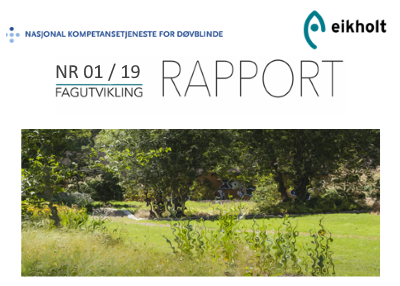Eikholt report on CBS syndrome

The background to the report is that there is little knowledge and awareness of Charles Bonnet Syndrome (CBS) among people with visual impairment and hearing impairment/deafblindness. It turns out that there is a greater risk of CBS when you also have a hearing impairment, live in social isolation, have fatigue or high stress levels. These factors are more common among people with visual impairment and hearing impairment/deafblindness, and we can therefore assume that they experience more hallucinations due to CBS than others.
Line Kristine Gundersen Hovland at Eikholt National Resource Centre for Deafblindness has investigated the impact of living with CBS on activities of daily living and social life. The participants were recruited via the information channels of the user organisations, the Norwegian National Advisory Service on Deafblindness (NKDB) and Eikholt.
The project looked at how people with visual impairment and hearing impairment/deafblindness experience the impact of CBS on daily life, social life and communication. The study wanted to gain more knowledge about how hallucinations are experienced and understood, and how the world is accessible when living with CBS.
The purpose of this report is to present what we know about CBS and how it can affect everyday life. Hallucinations due to CBS affect activities of daily living, getting around, communication and social life to varying degrees.
Want to read the report, read here.
